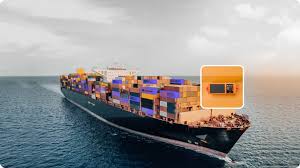Tech
The Physical Container Industry: Backbone of Global Commerce

The shipping container industry stands as a cornerstone of international trade, with its impact reaching far beyond mere transportation. Since Malcom McLean’s innovation in the 1950s, standardized shipping containers have transformed global commerce.
Today, the USA containers market plays a pivotal role in this ecosystem, facilitating billions of dollars worth of trade annually. The standardization of container dimensions has revolutionized logistics, creating efficiencies that were previously unimaginable.
These steel boxes, typically measuring 20 or 40 feet in length, have standardized dimensions that revolutionized cargo handling. The standardization has led to remarkable efficiencies in loading, unloading, and transporting goods across different modes of transportation.
Modern ports have evolved into highly automated facilities capable of handling thousands of containers daily, with specialized equipment and systems optimizing every aspect of container movement. The integration of smart technologies has further enhanced operational efficiency.
Technology and Innovation in Container Logistics
The digital transformation of the container industry has been remarkable. Advanced tracking systems utilizing IoT sensors and GPS technology provide real-time visibility into container locations and conditions.
Blockchain solutions are emerging to enhance transparency and security in container logistics. The USA containers industry has been at the forefront of these technological adoptions, implementing sophisticated port management systems and automated handling equipment.
These innovations extend to container design and functionality. Smart containers equipped with environmental monitoring systems ensure cargo integrity throughout the journey.
Temperature-controlled containers have revolutionized the transportation of perishable goods, while specialized containers cater to specific industry needs, from dangerous goods to oversized cargo.
Sustainability and Future Developments
Environmental considerations are reshaping the container industry. Manufacturers are exploring more sustainable materials and designs, while shipping companies invest in cleaner propulsion systems.
The focus on reducing empty container movements and optimizing route efficiency demonstrates the industry’s commitment to minimizing its environmental impact. Many USA containers initiatives now prioritize sustainability, from solar-powered refrigeration systems to recyclable container materials.
The industry continues to adapt to new challenges and opportunities. Recent global supply chain disruptions have highlighted the need for greater resilience and flexibility in container logistics.
Companies are investing in predictive analytics and artificial intelligence to optimize container movements and prevent bottlenecks. The emergence of autonomous vessels and ports promises to further revolutionize container shipping.
Looking forward, the container industry’s evolution shows no signs of slowing. Innovation in materials science may lead to lighter, stronger containers, while automation continues to transform port operations.
As global trade patterns evolve, containers remain fundamental to international commerce, connecting markets and facilitating trade across continents.

-

 Health5 years ago
Health5 years agoAdvantages and Disadvantages of Milk
-

 Tech4 years ago
Tech4 years ago6 Tips to Improving E-Commerce Websites
-

 Home5 years ago
Home5 years agoAdvantages and Disadvantages of Village Life in Points
-

 Travel5 years ago
Travel5 years agoAdvantages and Disadvantage of Travelling
-

 Sports3 years ago
Sports3 years agoThe benefits of playing an online live casino
-

 Tech5 years ago
Tech5 years ago10+ Advantages and Disadvantages of Mobile Phones in Points
-

 Tech5 years ago
Tech5 years agoEssay on Advantages and Disadvantages of Offline Shopping
-

 Tech5 years ago
Tech5 years ago8+ Advantages and Disadvantages of Motorcycle |Having Bike